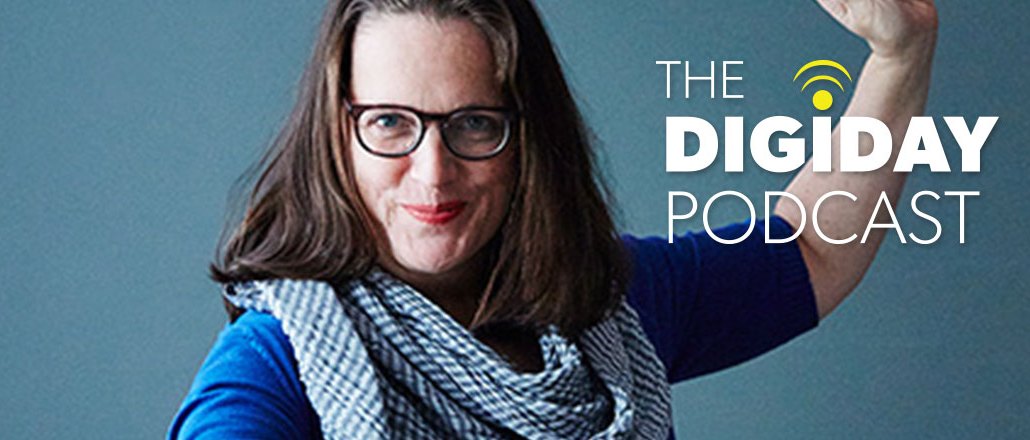
Bridget Williams is no stranger to the race to amass large audiences in media. She was a top executive at Business Insider from 2009 to 2013 during that site’s meteoric audience expansion.
But in her new role as chief operating officer at Food52, Williams is now focused on the “anti-Business Insider”: a media company devoted to home cooks that’s building a deep community over large audience numbers. Though the site attracts just 5 million monthly visitors, it has a healthy business that is nearing profitability. Advertising is just one third of its revenue, with commerce making up the balance.
“The game has changed,” she said on this week’s episode of the Digiday Podcast. “If you were early Twitter and Facebook adopter, you just won. It was easy. It’s way more crowded. Everyone is doing the same thing now. The game is what is everyone not doing.”
Below are lightly edited highlights from the episode.
Building a big audience doesn’t mean you have a business.
Many publishers have focused on building massive audiences, using social platforms like Facebook in particular to turbo-charge this. Now, they’re faced with twin challenges of matching that audience growth with revenue (and profits) and building a long-term brand that means something.
“There’s a shift in the winds,” Williams said. “If there is a shakeout, people with a differentiated [brand] will win, I hope. If someone hears your brand and it doesn’t come to mind what you do well, advertisers don’t want in. They can go get 100 million eyeballs anywhere.”
Most publishers are faking commerce.
It’s en vogue these days for publishers to tout diversified revenue streams. A tough ad market pushes that along. Commerce is an area several media companies, such as Gawker, have touted as big growth areas. But many aren’t truly doing commerce; they’re just using affiliate links with — cringe alert — “com-tent.” Doing actual commerce — holding inventory and fulfilling orders — is not only very hard but not part of the core competencies of media companies, Williams said.
“Media companies don’t understand merchandising,” she said. “It’s so foreign. You can’t just put the product up. You have to tell a story about it. You have to look at a whole different set of data. You have to understand all these things media companies don’t think about.”
Many people underestimated Business Insider.
Williams was at Business Insider when it was just 15 people. With its $450 million sale to Axel Springer, BI proved many critics wrong. What goes under-appreciated, in the view of Williams, is that BI succeeded in having a clear point of view that was differentiated — and sticking to it.
“They have a point of view of the world,” Williams said. “You knew a Business Insider story before everyone started copying it. It was authentically trying to do something interesting. Henry was trying to do something different. They never bought traffic. All the fast growth companies now, how many are buying traffic now? A lot.”
Digital media has thought too narrowly.
Recently the trend for digital media upstarts from BuzzFeed to Mashable is to go beyond digital and into TV. This was a long time coming, according to Williams, since digital media should never have relegated their brands solely to the Web.
“Say what you will about Vice,” she said. “But they’re trying to do TV the way a digital media company would do TV. Digital companies have been wrong in not doing it sooner.”
More in Media

Walmart rolls out a self-serve, supplier-driven insights connectors
The retail giant paired its insights unit Luminate with Walmart Connect to help suppliers optimize for customer consumption, just in time for the holidays, explained the company’s CRO Seth Dallaire.

Research Briefing: BuzzFeed pivots business to AI media and tech as publishers increase use of AI
In this week’s Digiday+ Research Briefing, we examine BuzzFeed’s plans to pivot the business to an AI-driven tech and media company, how marketers’ use of X and ad spending has dropped dramatically, and how agency executives are fed up with Meta’s ad platform bugs and overcharges, as seen in recent data from Digiday+ Research.

Media Briefing: Q1 is done and publishers’ ad revenue is doing ‘fine’
Despite the hope that 2024 would be a turning point for publishers’ advertising businesses, the first quarter of the year proved to be a mixed bag, according to three publishers.





